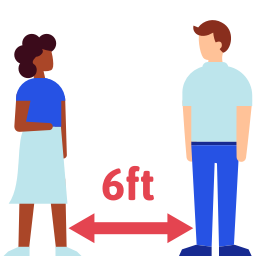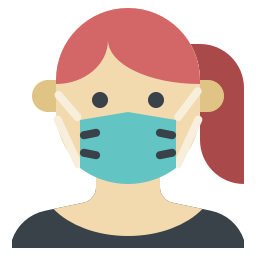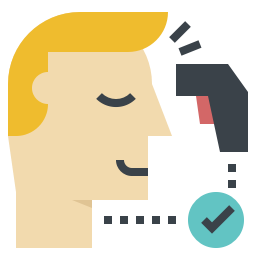ELIGIBILITY includes anyone who meets all of the following criteria:
-
Age 12+
-
Has not received a booster in the last 2 months
-
Has not had COVID in the last 8 weeks
HAVE QUESTIONS? We've pulled together some of our most commonly asked questions (and answers) regarding the COVID-19 booster. We hope that it will address some of your concerns and aid you in your decision-making process.
Have questions but don't see an answer here, email us at askCOVID@mrhme.org
What is a booster?
- A booster shot is an extra dose of vaccine that strengthens and prolongs your immunity to a particular disease.
I've been boosted before. Why should I get boosted again?
- This new bivalent formulation is more effective against current COVID variants
- It provides protection against Omicron BA.4 + BA.5 variants, which account for nearly 90% of new COVID cases
- Omicron variants are more contagious than previous strains and can more easily evade immunity from previous vaccination or infection. Omicron can also cause reinfection for people who have recovered from COVID-19.
- Fully vaccinated (and booster) persons have 94% protection against serious illness and death
Who is eligible for a COVID booster shot?
You are eligible for a booster shot if you meet the following criteria:
- 12 years and older (Pfizer) or 18 years and older (Moderna)
- Have not received a booster in the last 2 months
- Have not had COVID in the last 8 weeks
Why might I need a booster?
- A booster shot is recommended due to concern that the effectiveness of the vaccine decreases over time and may not protect against a new strain. The new bivalent booster covers a wider range of protection and is more effective against current COVID variants.
Is it safe for me to get a booster shot from a different vaccine brand?
-
The FDA and CDC support a “mix-and-match” approach that allows people to choose a different vaccine for their booster than the one they started with.
I got Johnson & Johnson's vaccine. What does this mean for me?
- Any adult who got a Johnson & Johnson vaccine may get a booster from Pfizer or Moderna as long as it has been at least two months since their single-dose shot. Here at MRH, we encourage those who got the J&J to get the booster. The science is very, very clear that it gives you more robust antibody response than the single shot of J&J.
Will you be offering booster shots at MRH Walk-In Care?
- No. Booster shots will not be given at Walk-In Care. Please plan to visit us at one of our open clinics in Millinocket or Patten to get your booster. No appointments needed!
Which boosters will you be offering?
- MRH may offer Moderna or Pfizer boosters. Both are safe and effective when paired with Pfizer, Johnson & Johnson or Moderna vaccines.
If we need boosters, are the vaccines working?
- COVID-19 vaccines are working well to prevent severe illness, hospitalization, and death. However, public health experts are starting to see reduced protection over time against mild and moderate disease, especially among certain populations.
Am I still considered “fully vaccinated” if I don’t get a booster?
- The definition of fully vaccinated has not changed and does not include a booster. Everyone is still considered fully vaccinated two weeks after their second dose in a two-dose series, such as the Pfizer-BioNTech and Moderna vaccines, or two weeks after the single-dose J&J/Janssen vaccine. Fully vaccinated, however, is not the same as having the best protection. People are best protected when they stay up to date with COVID-19 vaccinations, which includes getting boosted when eligible.
What if I am immunocompromised?
- If you are moderately or severely immunocompromised (have a weakened immune system), you are at increased risk of severe COVID-19 illness and death. Additionally, your immune response to COVID-19 vaccination may not be as strong as in people who are not immunocompromised.
As with vaccines for other diseases, you are protected best when you stay up to date with your COVID-19 vaccines as described below.
Who Is Moderately or Severely Immunocompromised?
Many conditions and treatments can cause a person to be immunocompromised (having a weakened immune system). People are considered to be moderately or severely immunocompromised if they have:- Been receiving active cancer treatment for tumors or cancers of the blood
- Received an organ transplant and are taking medicine to suppress the immune system
- Received a stem cell transplant within the last 2 years or are taking medicine to suppress the immune system
- Moderate or severe primary immunodeficiency (such as DiGeorge syndrome, Wiskott-Aldrich syndrome)
- Advanced or untreated HIV infection
- Active treatment with high-dose corticosteroids or other drugs that may suppress their immune response


 Wash your hands often
Wash your hands often Avoid close contact
Avoid close contact Cover your mouth and nose with a cloth face cover when around others
Cover your mouth and nose with a cloth face cover when around others Cover coughs and sneezes
Cover coughs and sneezes Clean and disinfect
Clean and disinfect Monitor Your Health Daily
Monitor Your Health Daily